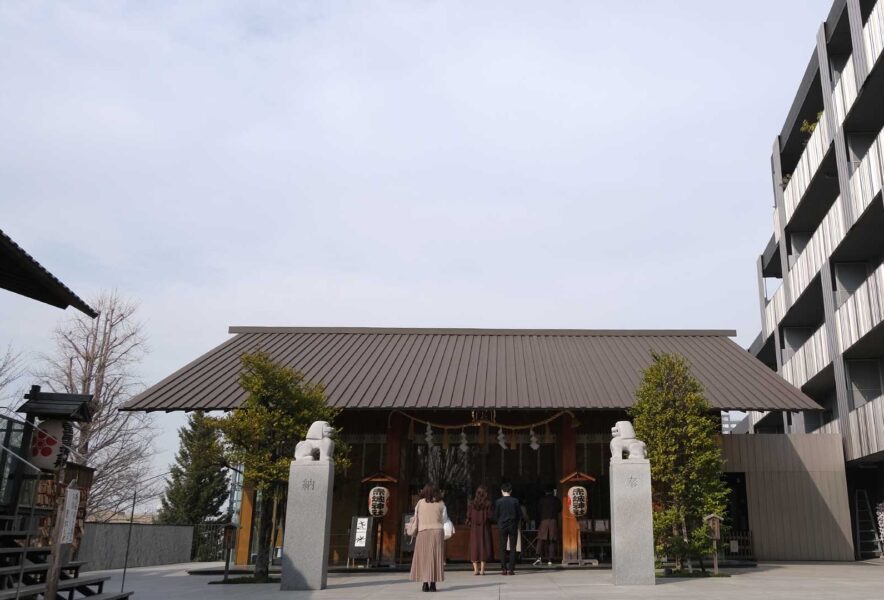Today’s leisurely walk Kagurazaka
It was once developed as a hanamachi and is still one of the six hanamachi in Tokyo, operated by four ryotei restaurants, about 20 geisha, and a cooperative office called a “watchman. Although the number of ryotei and teahouses has been decreasing over the years, we will take a stroll through Kagurazaka, a town of side streets and slopes where one can still feel the vestiges of the past.
- Today’s route is Kagurazaka
- A.JR Iidabashi Station
- B.Kagurazaka Street
- C.Kenban Yokocho
- D.Geisha Komichi(trail)
- E.Bishamonten Zenkokuji Temple
- F.Kakurenbo Yokocho
- G.Hyogo Yokocho.
- H.Tukudo-Hachiman Shrine
- I.Akagi Shrine
- J.(Goal)Kagurazaka Station
- Review of the route
- Access to Kagurazaka
- Parking around Kagurazaka
- Kagurazaka walk Official Website
- Recommended around Kagurazaka
Today’s route is Kagurazaka
A.JR Iidabashi Station
B.Kagurazaka Street
C.Kenban Yokocho
D.Geisha Komichi(trail)
E.Bishamonten Zenkokuji Temple
F.Kakurenbo Yokocho
G.Hyogo Yokocho.
H.Tukudo-Hachiman Shrine
I.Akagi Shrine
J.Kagurazaka Station
A.JR Iidabashi Station
The “Historic Site View Terrace” at the west exit of JR Iidabashi Station, which was renovated in 2021, offers a view of the adjacent “Ushigome-mitsuke site” and “Edo Castle outer moat site” from above.
Ushigome-mitsuke” was one of the 36 gates of Edo Castle, and was used by Hatamoto warriors who lived in the Kagurazaka area to go up to the castle. The stone wall of the gate built in 1639 still remains.
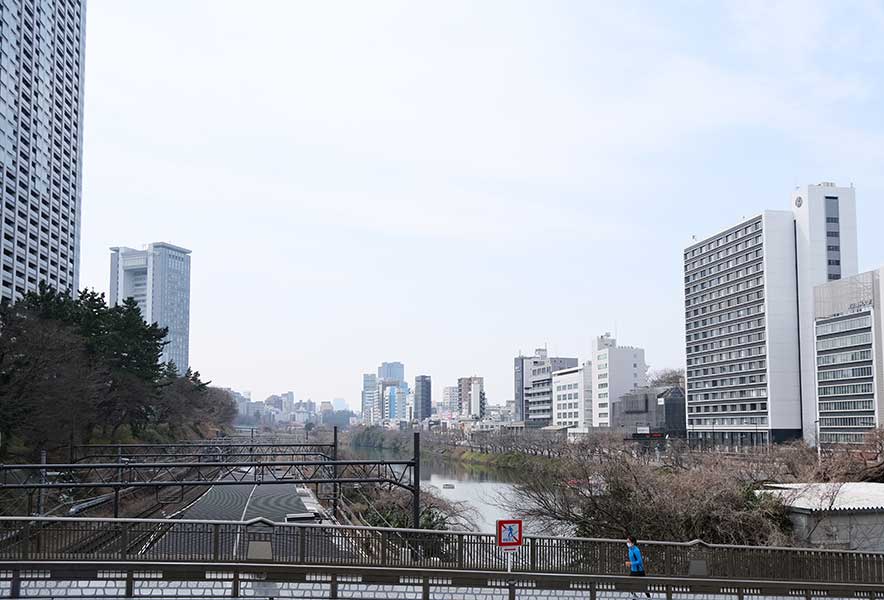
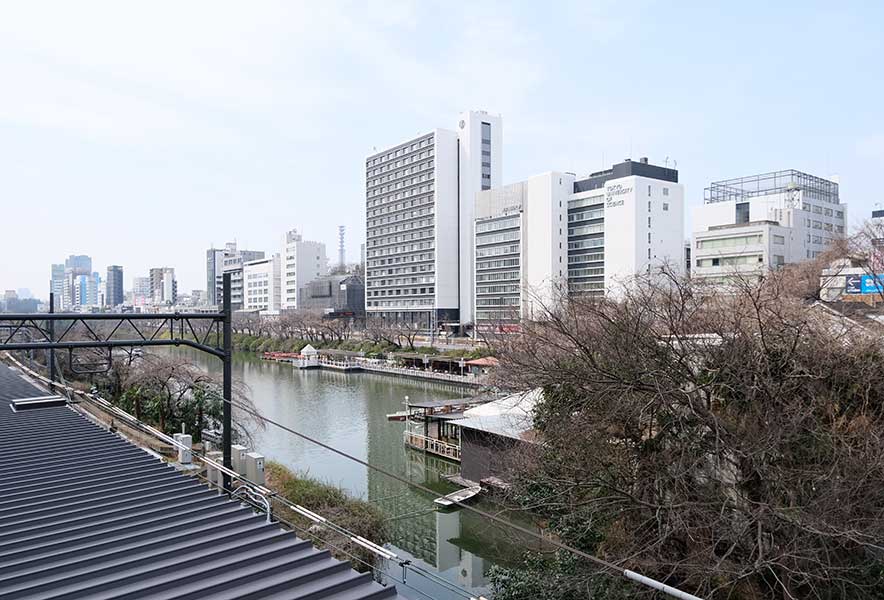
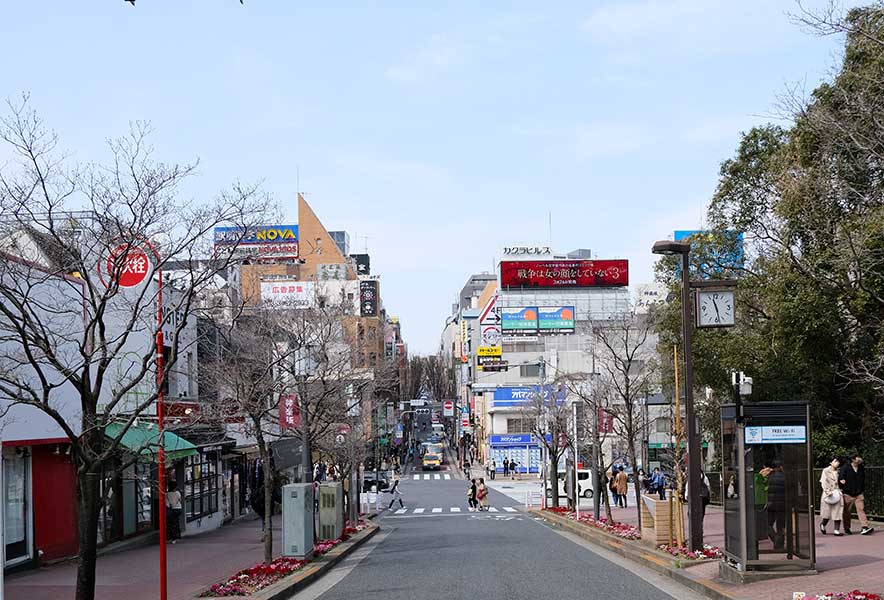
B.Kagurazaka Street
Take the west exit and you will see Kagurazaka-dori in front of you on your right. Cross the Sotobori Dori traffic light and you are under Kagurazaka.
Kagurazaka-dori is the main street of Kagurazaka, extending from the Kagurazaka-shita intersection of Sotobori-dori to the Kagurazaka-ue subway station beyond the Kagurazaka intersection.
Both sides of the street are lined with a variety of stores.
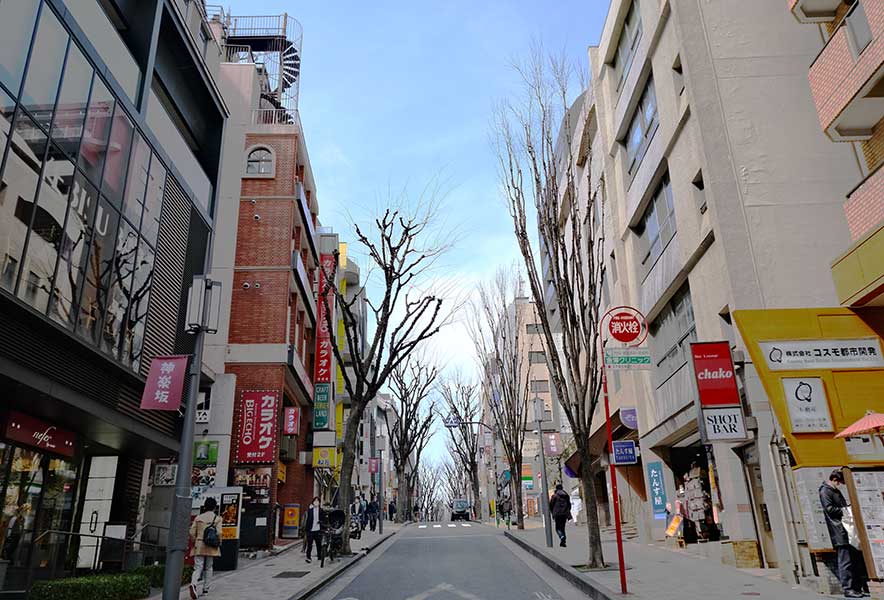
Kinozen
As soon as you enter the street, you will find Kinozen, a long-established sweet shop.
In addition to its signature green tea bavarois, the shop is always crowded with people with sweet tooths, offering shaved ice in summer and chestnut zenzai in fall.
Walk up the hill for a while on the busy street, which is crowded with many people.
Attractive alleys extend on both sides. Off the main street, turn left into the alleyway.
C.Kenban Yokocho
Past the small Inari shrine is the Tokyo Kagurazaka Association, from which the alley takes its name, “Kenban”.It is an office that organizes geisha, and you are lucky if you hear the sound of shamisen from the rehearsal hall on the second floor.
The street of stairs leading to Atamiyu (public bathhouse) is called “Geisha -komichi”.
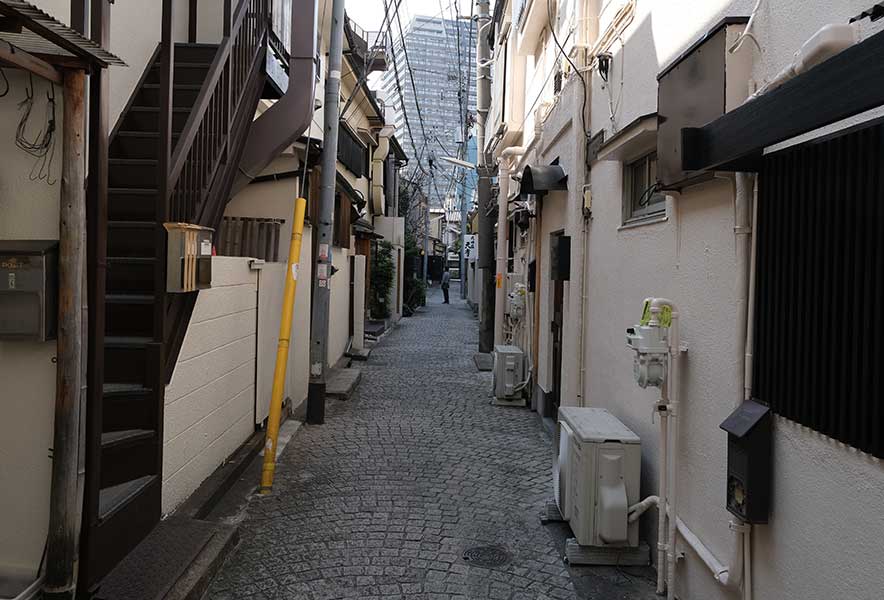
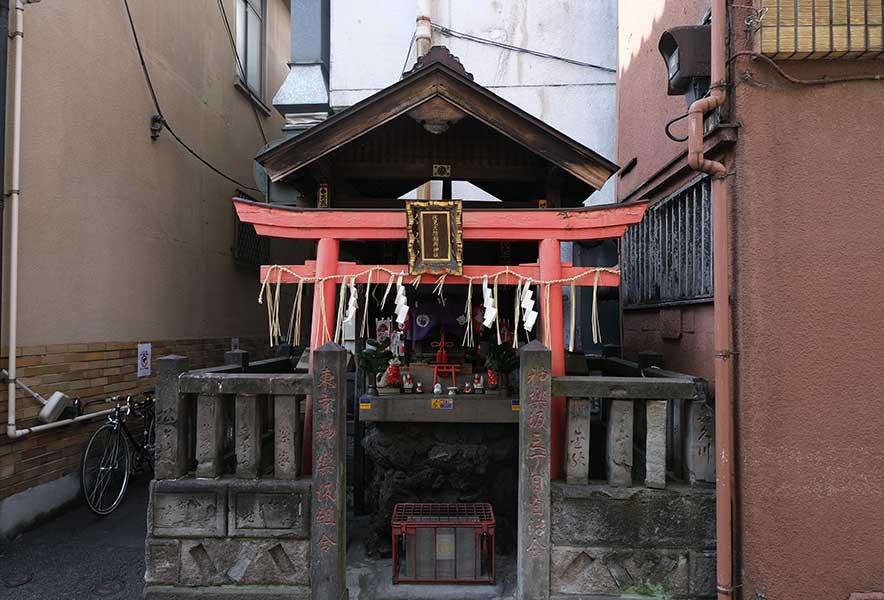
D.Geisha Komichi(trail)
It is famous as a filming location that often appears on TV and in movies due to its atmospheric appearance.Stone steps and cobblestone side streets stretch here and there, with small restaurants and hideaway bars, but little by little the old buildings are diminishing!
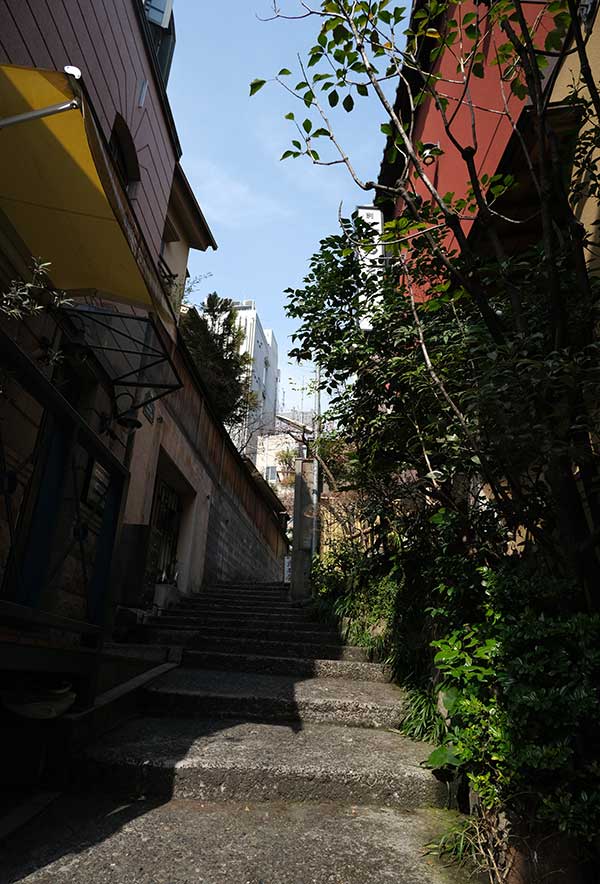
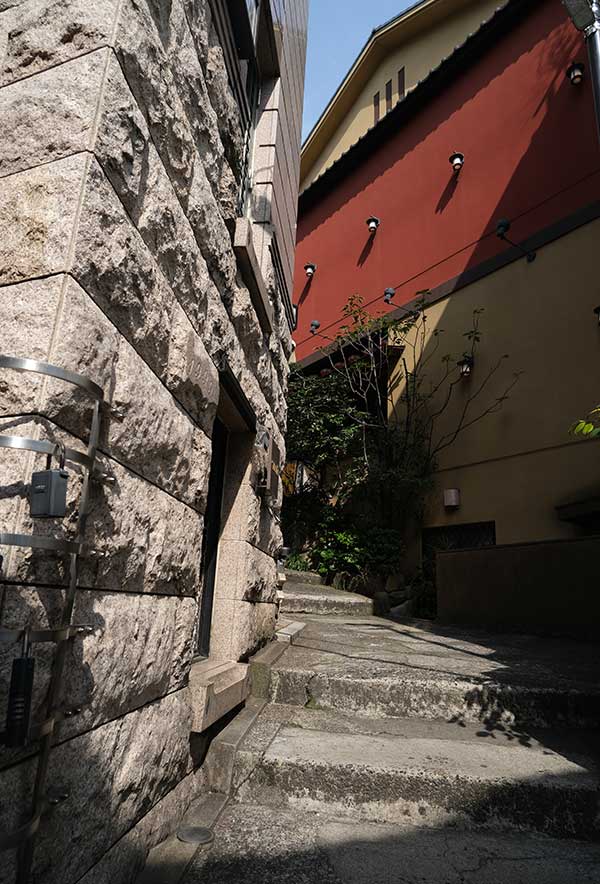
Atamiyu (public bathhouse)
When you go down the Atami Yu stairs, you will come to Oguri Yokocho.The Atami Yu, located on the right corner of this building, is an old-fashioned public bathhouse that opened in 1973 and was once visited by 1,000 people a day, including geisha.
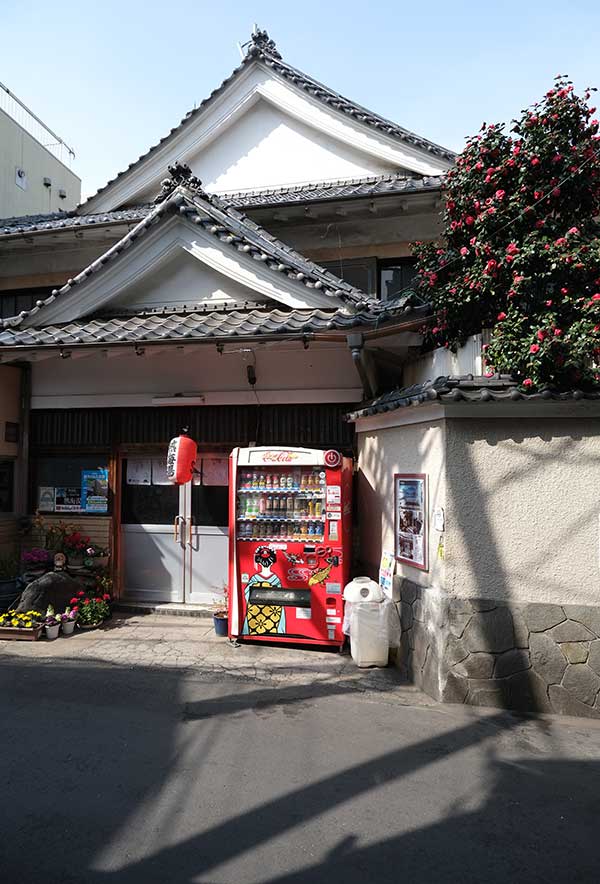
Return to Kagurazaka-dori and walk up the hill some more.
E.Bishamonten Zenkokuji Temple
Zenkokuji Temple is a symbol of Kagurazaka and is called “Bishamon-sama” by the locals.In 1595, Ieyasu Tokugawa gave the temple land to the temple and it was founded in Nihonbashi Bakurocho. After passing through Kojimachi, it was moved to this location in 1792.
Bishamonten, the principal deity, is a god of treasure that has been worshipped in India since ancient times. Therefore, Bishamonten is believed by many people to bring them good fortune in terms of money and good luck in terms of opening doors and getting rid of bad luck.
The “Tiger Day” fair, which originates from Bishamonten, is very lively and is said to be the birthplace of the fair in Tokyo.
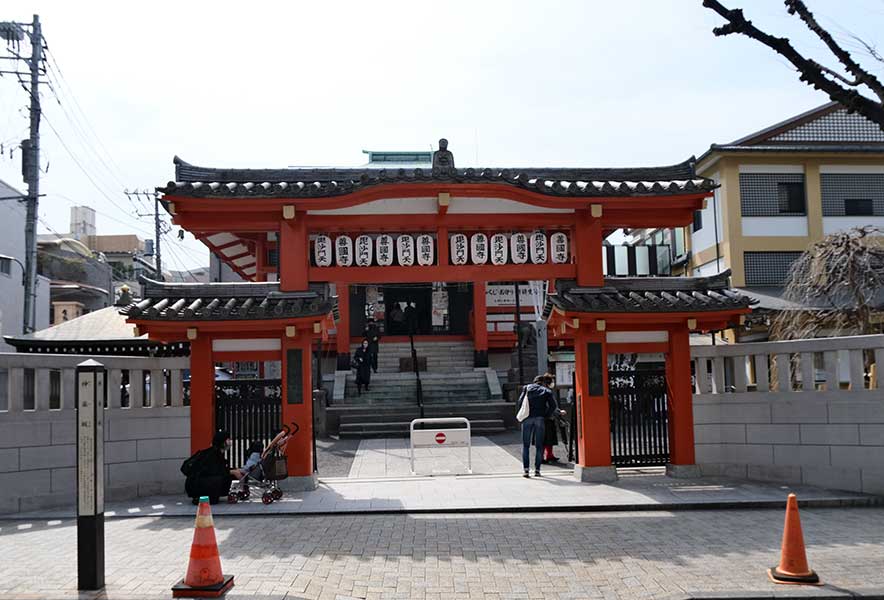
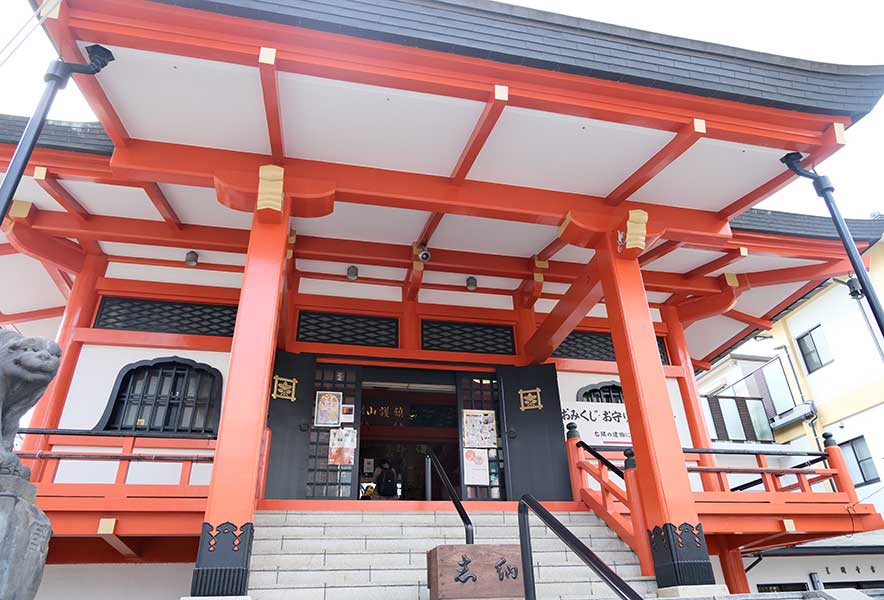
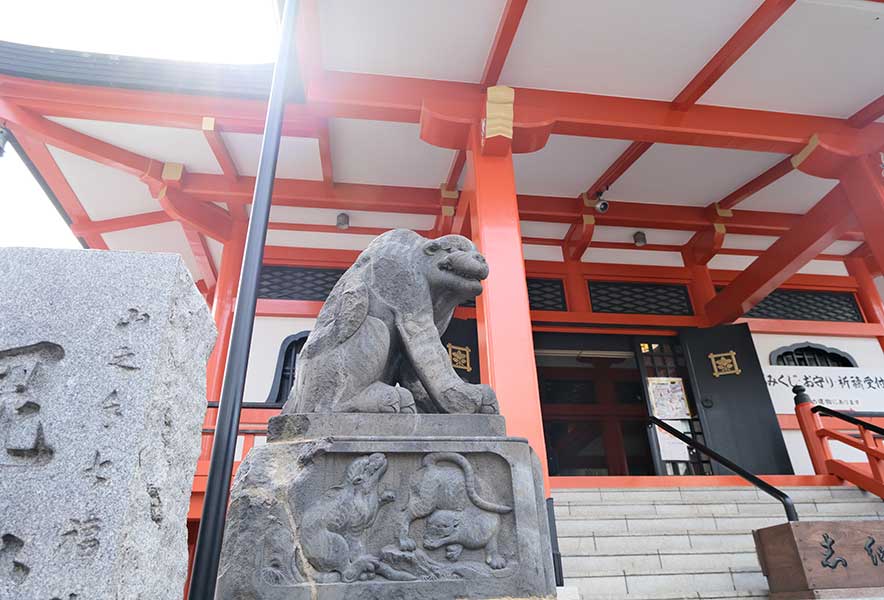
Cross Kagurazaka Street into Honda Yokocho in front of Zenkokuji Temple and turn right into Kakurenbo Yokocho.
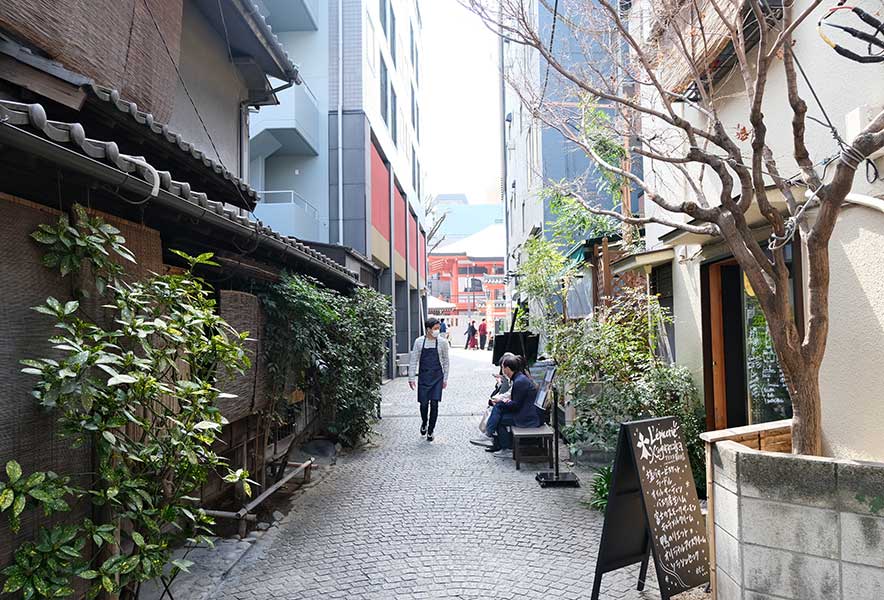
F.Kakurenbo Yokocho
The name of the road comes from the saying, “Even if you follow an important person who has come secretly to the Hanamachi, you will not recognize him if he enters an alley.
Walking through the stone-paved streets and the ryotei surrounded by black walls, one can feel the atmosphere of a traditional hanamachi (flower town).
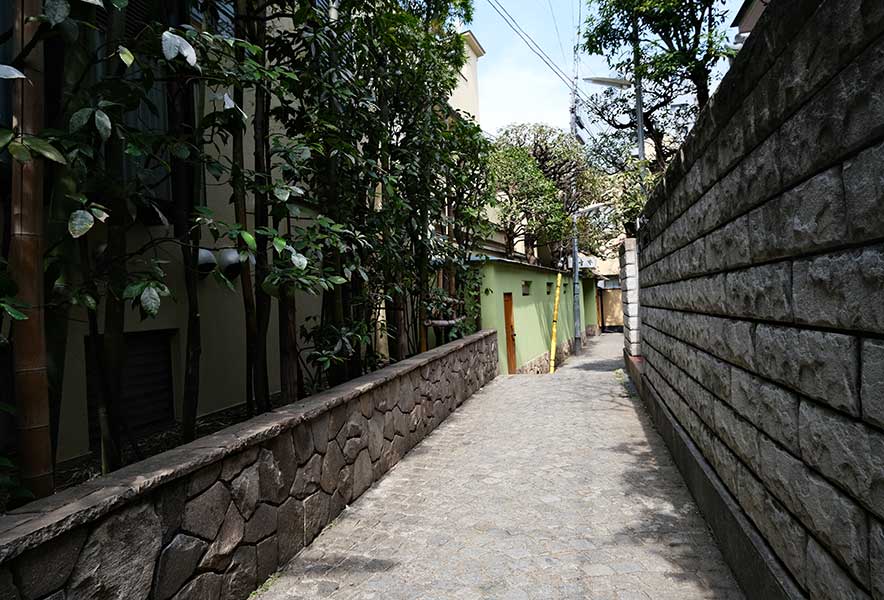
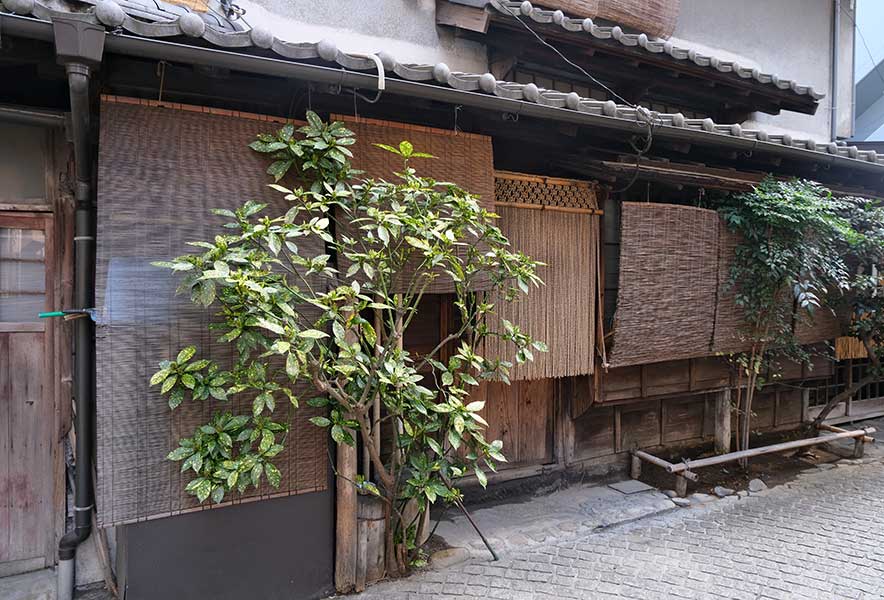
If you go up Karuko Hill from Kakurenbo Yokocho, you will reach Hyogo Yokocho.
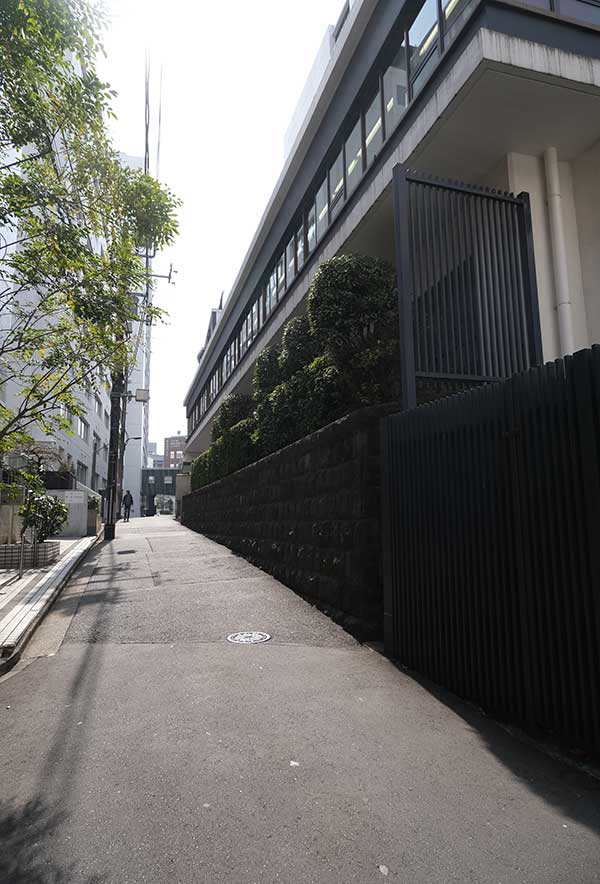
G.Hyogo Yokocho.
A narrow alley lined with stone pavement, black walls, and long-established ryotei restaurants.It has often been used for film and television locations, and has also won the Tokyo Metropolitan Government Shinjuku City Townscape Award.One of the oldest streets in Kagurazaka, it was once a strategic point on the old Kamakura Road and was named “Hyogo Yokocho” (Hyogo Alley) because arms dealers lived here during the Warring States Period and there was a “Hyogo” (warehouse for storing weapons)
Uotoku
“Uotoku” is a ryotei (Japanese-style restaurant) that has been used by Kouyo Ozaki and Kyoka Izumi.
A stone-paved alley that retains the atmosphere of Kagurazaka Hanamachi.Along the street, there was a ryotei restaurant “Kohon” and a ryokan called “Wakana” which was a favorite of many writers.
Straight through Hyogo Yokocho, you will come to the large Okubo Street.
H.Tukudo-Hachiman Shrine
It is said that Saicho, the founder of the Tendai sect of Buddhism, visited this place when it was first built.In the Edo period (1603-1867), Chikudo Myojin was located next door (now relocated to Kudanshita), and the shrine was crowded with worshippers, as seen in the Edo Meisho Zue (Illustrated Guide to Famous Places in Edo).
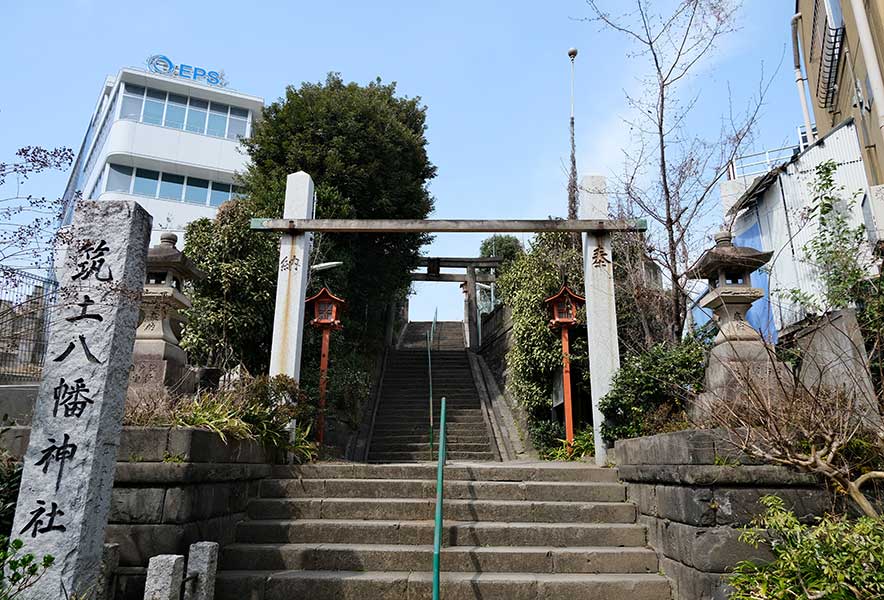
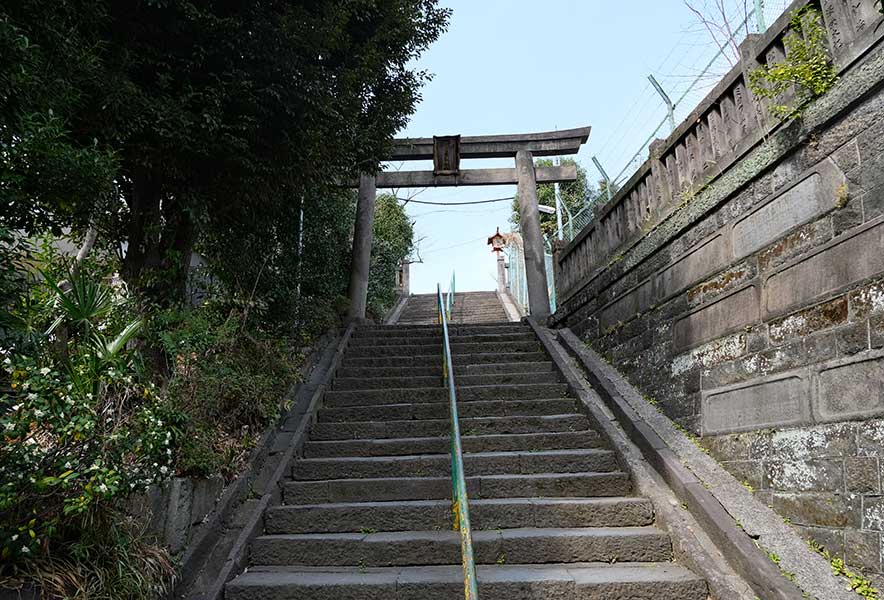
Take Okubo Street back to Kagurazaka-ue and enter the Kagurazaka-dori shopping street.Supermarkets and cafes offer a glimpse into the daily lives of the people who live in this neighborhood.
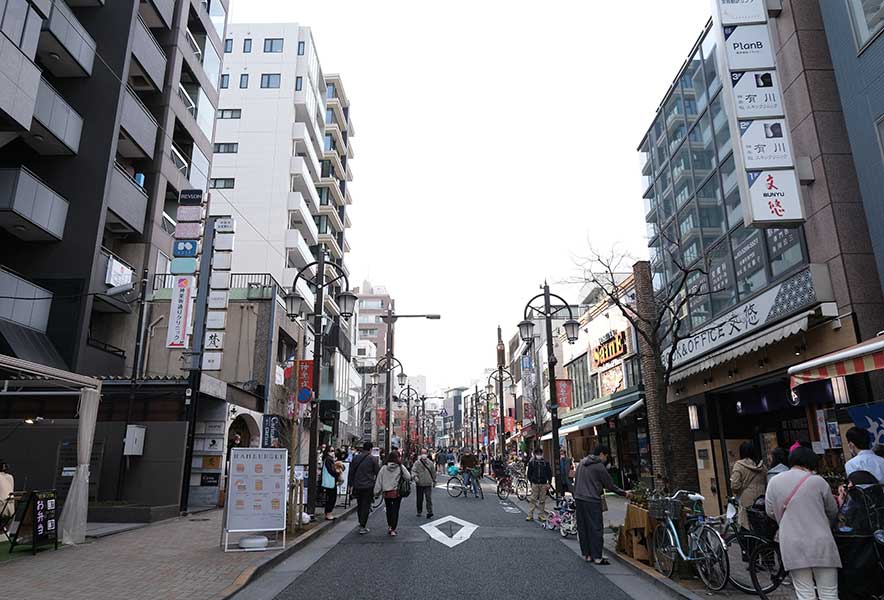
I.Akagi Shrine
The shrine is said to have originated in 1300, when Shoji Ogo Hikotaro Shigeharu, a member of the powerful Ogo clan at the foot of Mount Akagi in Gunma Prefecture, moved to Ushigome and enshrined a branch of the Akagi Shrine, which had been a Shinto shrine in his home country.
In 1683, the Tokugawa Shogunate added Hie Shrine, Kanda Myojin, and Akagi Shrine to the ranks of Edo Taisha shrines and revered them as the head shrines of Ushigome, calling them the “three shrines of Edo.
Since then, the shrine has been repeatedly lost to fire and war, and the current shrine building was completed in 2010. The shrine was designed by Kengo Kuma and was awarded the Good Design Award in 2013, which is very rare for a shrine.
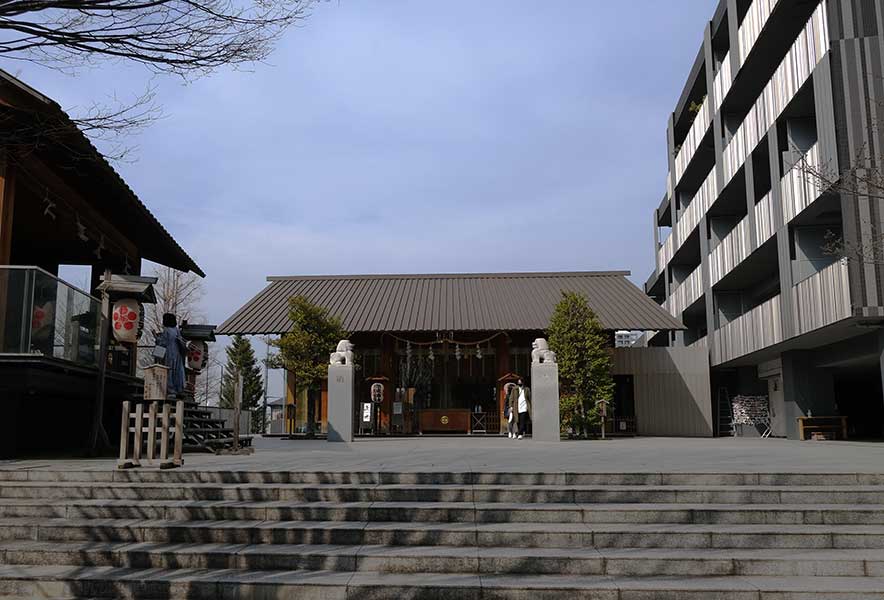
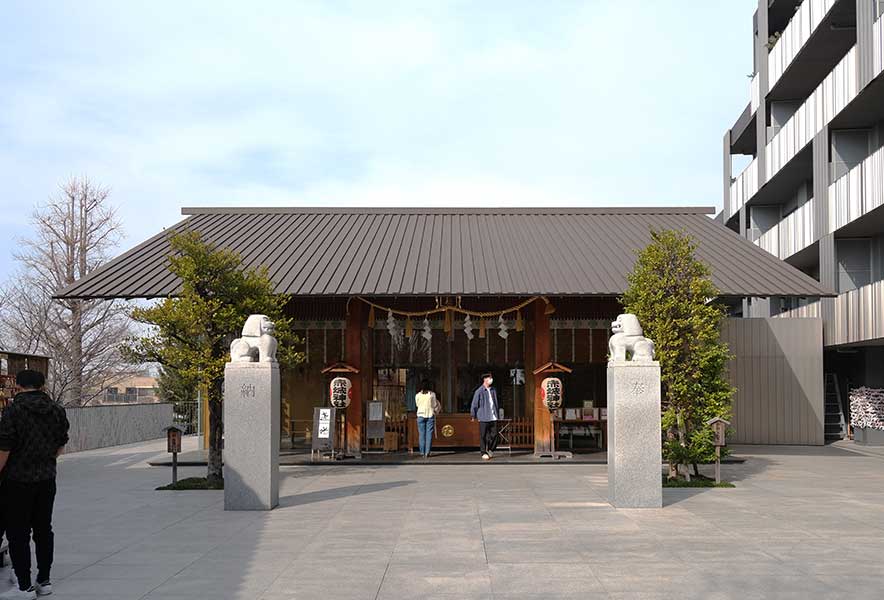
J.(Goal)Kagurazaka Station
From the approach to Kagurazaka station is just a stone’s throw away. This concludes today’s stroll.
Review of the route
A.(Start)JR Iidabashi Station
↓ 17m
B.Kagurazaka Street
↓ 220m
C.Kenban Yokocho
↓ 50m
D.Geisha Komichi(trail)
↓ 190m
E.Bishamonten Zenkokuji Temple
↓ 260m
F.Kakurenbo Yokocho
↓ 190m
G.Hyogo Yokocho.
↓ 350m
H.Tukudo-Hachiman Shrine
↓ 800m
I.Akagi Shrine
↓ 32m
J.(Goal)Kagurazaka Station
Total2.1kmTransportation within the facility is not included.)
Access to Kagurazaka
JR Iidabashi Station (Start) : 4-9-5 Iidabashi, Chiyoda-ku, Tokyo 102-0072
Parking around Kagurazaka
Kagurazaka walk Official Website
Bishamonten Zenkokuji Temple : https://www.kagurazaka-bishamonten.com/
Akagi Shrine : https://www.akagi-jinja.jp/
